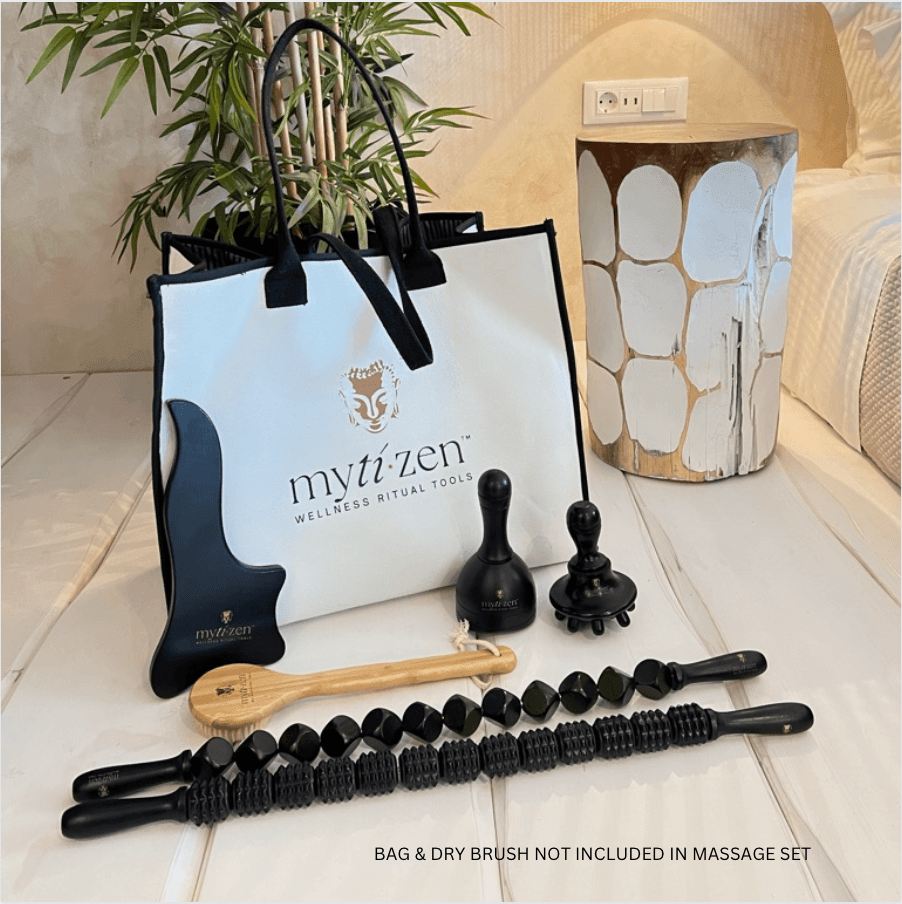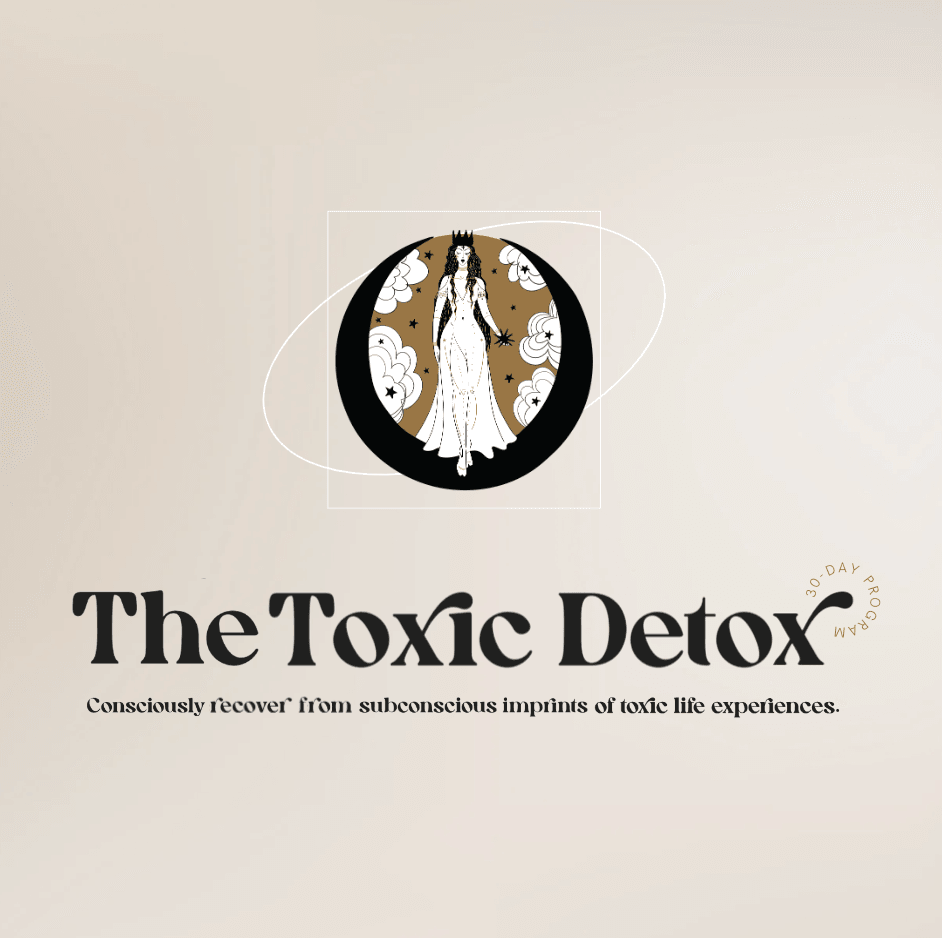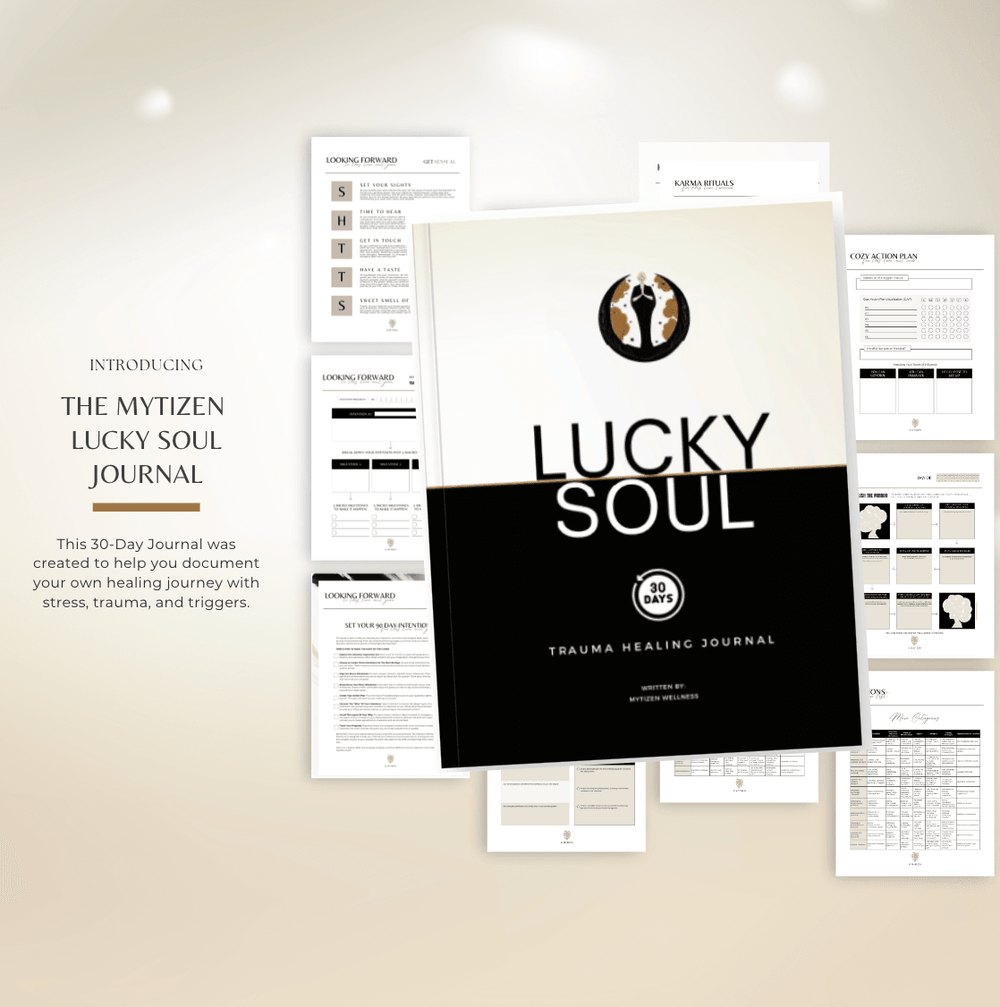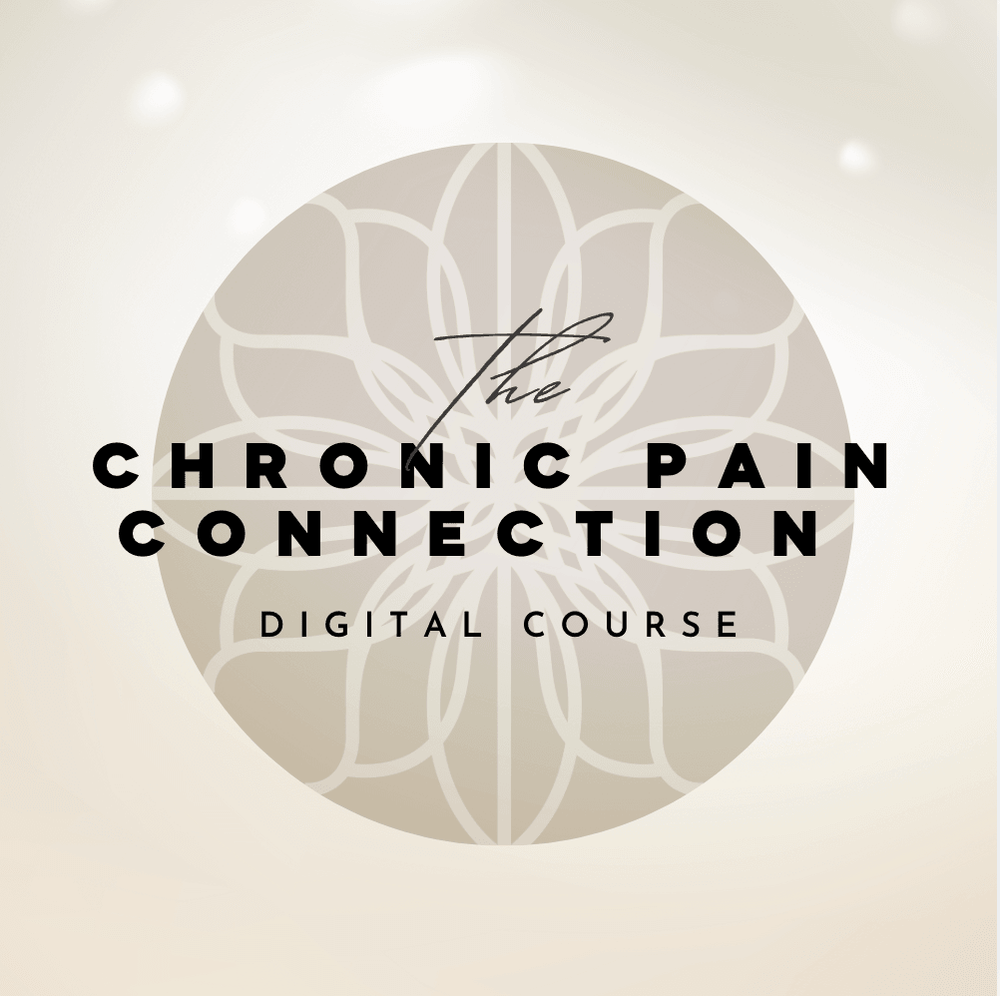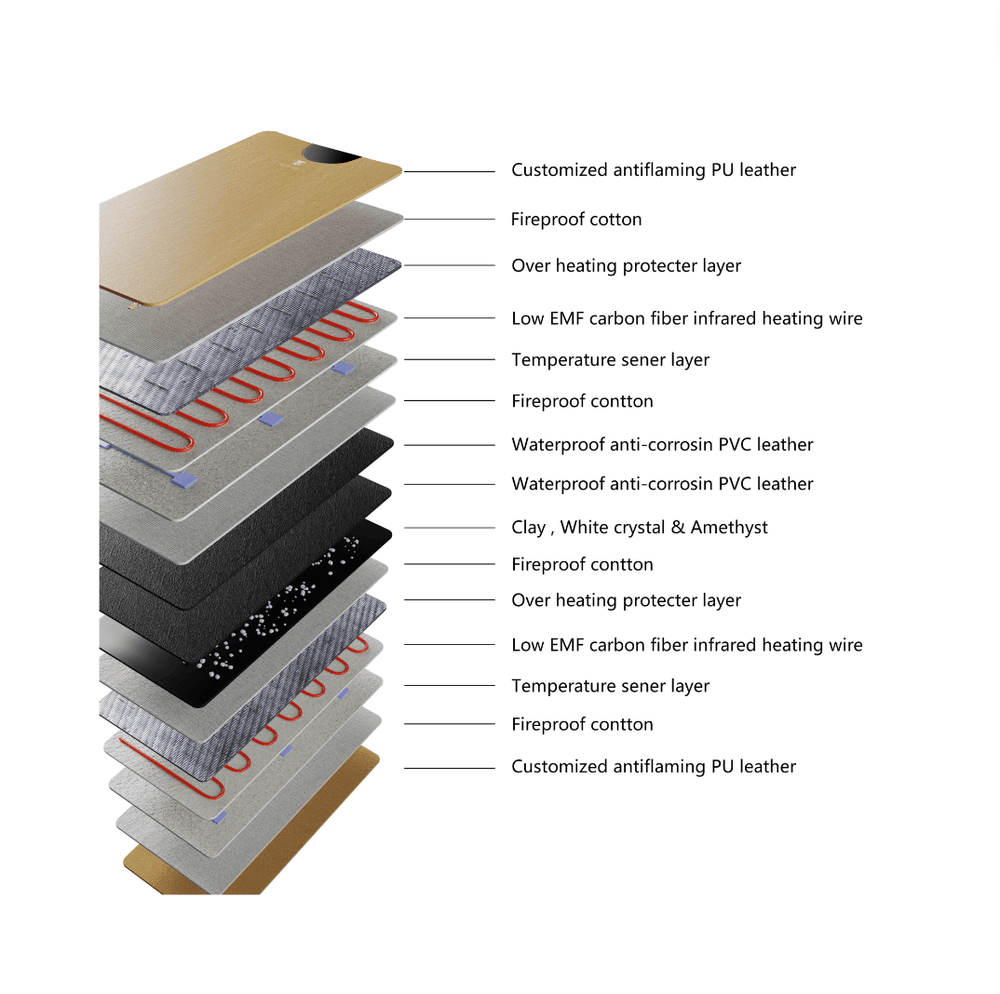New Year, New Hope: Resolutions for Chronic Pain Management
Empowering Women with Chronic Pain In The New Year
Living with chronic pain can be a daunting and overwhelming experience. It’s an ongoing battle that takes a toll on your physical, emotional, and mental well-being. But as the new year approaches, it’s time to set new goals and focus on building good habits that will help you overcome the challenges of chronic pain and break free from the bad habit of letting pain control your life. Developing strategies for pain reduction is essential in empowering women with chronic pain in the new year.
As we embark on a new year, it's the perfect time to prioritize our well-being and set new goals. The start of a new year is a fresh opportunity to change bad habits and establish new routines that will help you grow psychologically, emotionally, socially, physically, or intellectually.
Let's focus on building good habits that will help you overcome the challenges of chronic pain and establish new routines. Instead of setting resolutions centered around weight loss or extreme exercise routines, let's prioritize taking care of our bodies and minds as a great starting point to prioritize your health and wellness on your own terms, including daily activities.
By taking a proactive approach to our pain management journey, we empower ourselves as women to find ways to alleviate physical discomfort.
New Year, New Beginnings: Shifting Focus to Well-being
In this blog post, we will take you through the top 7 resolutions for women living with chronic pain.
- We’ll discuss the impact of chronic pain on daily life and how it affects your overall health.
- We’ll also dive into understanding the fascia connection to physical well-being and learn how to set realistic goals, block your time, practice mindfulness and stress management techniques, engage in activities that bring joy and fulfillment, celebrate progress and success, no matter how small, and review your resolutions regularly.
Remember, don’t make perfection the goal; making progress is what counts. Let’s ring in the new year right by saying goodbye to pain!
I know I'm not the only one....
The Reality of Living with Chronic Pain
The impact of chronic pain on daily life cannot be underestimated. Simple tasks, such as household chores or spending quality time with loved ones, can become overwhelming and exhausting. Sleep disturbances, fatigue, and decreased physical mobility are common challenges faced by women living with chronic pain. The constant struggle to manage pain can also take a toll on mental health, leading to feelings of frustration, helplessness, and social isolation. Recognizing these challenges and finding ways to navigate through them is essential for improving quality of life and overall well-being.
The reality of living with chronic pain is a complex and often misunderstood experience. Women living with chronic pain face unique challenges, from finding adequate support and understanding to navigating through a multitude of treatment options and therapies. The physical, emotional, and social impact of chronic pain can be overwhelming, disrupting every aspect of daily life. It requires a resilient mindset, self-care, and a supportive environment to cope with the daily battles of chronic pain and the constant pain signals sent by the brain.
The Fascia Connection to Physical Well-being
The fascia, a web-like network of connective tissue that surrounds and supports our muscles and organs, plays a crucial role in our physical well-being. It provides structure, stability, and flexibility to the body, allowing for smooth movement and efficient functioning. When the fascia becomes tight or restricted, it can lead to a range of issues such as muscle imbalances, limited range of motion, and chronic pain is especially true for individuals living with chronic pain.
Understanding the connection between the fascia and physical well-being is essential in managing chronic pain. By keeping the fascia healthy through regular stretching, foam rolling, and other techniques, individuals can improve their wellbeing.
Simple Ways to Check Your Fascia at Home
Checking the condition of the fascia at home can provide valuable insights into the physical well-being of women with chronic pain. By engaging in self-assessment techniques, women can identify areas of tension and potential fascial restrictions. Here are some simple ways to check the fascia at home:
- Pinch yourself: Gently pinch various areas of your body, such as your arms, legs, and abdomen. Pay attention to any areas that feel particularly tight or tender. This could indicate fascial restrictions in those areas.
- Self-massage: Gently palpate different areas of your body, paying attention to any areas of tenderness or tightness.
- Stretching: Incorporate gentle stretches into your daily routine, focusing on areas that feel restricted or uncomfortable.
- Mindful movement: Practice body awareness exercises, like yoga or tai chi, to promote fascial mobility and comfort.
By staying attentive to the condition of the fascia, women can take a proactive approach to their pain management journey and find ways to alleviate physical discomfort.

Resolution 1: Prioritize Physical Wellness
Physical wellness is a cornerstone of pain management for women living with chronic pain. By making physical wellness a priority, women can improve their overall health, manage pain more effectively, and enhance their quality of life.
Importance of Movement in Managing Chronic Pain
Movement is crucial for managing chronic pain. Engaging in regular light physical activity can help reduce pain levels, improve flexibility, and strengthen muscles, leading to increased physical comfort and overall well-being. It may seem counterintuitive, but gentle exercises can provide significant pain relief for women living with chronic pain.
Movement increases blood flow, releases endorphins, and improves overall physical function, counteracting the negative effects of chronic pain. By incorporating movement into daily routines, women can actively participate in their pain management journey and regain a sense of control over their bodies.
Resolution 2: Invest in Mental Health
To holistically address chronic pain, women need to prioritize their mental health and engage in self-care practices. Living with chronic pain can take a toll on mental well-being, leading to stress, anxiety, depression, and feelings of isolation. By investing time and energy into mental health, women can develop coping strategies, manage stress, and enhance overall emotional well-being.
Chronic Pain and Mental Health
The connection between chronic pain and mental health is undeniable. Managing chronic pain can bring about significant emotional challenges, including stress, anxiety, depression, and a sense of isolation. The physical limitations, constant pain, and uncertainty about the future that come with chronic pain can contribute to a decline in mental well-being. Women with chronic pain need to address their mental health needs, seek support, and develop coping strategies to navigate the emotional complexities of their pain management journey.
Mentally prepare for change
Living with chronic pain requires both physical and mental preparation for the changes and challenges that may arise. Whether it's adopting new pain management techniques, implementing lifestyle modifications, or seeking alternative therapies, mental preparedness is crucial. Women living with chronic pain must embrace a resilient mindset, open themselves to new possibilities, and cultivate self-compassion. By mentally preparing for change, women can embark on a pain management journey that is grounded in self-care, self-empowerment, and personal growth.

Resolution 3: Eat for Healing
Nutrition plays a vital role in pain management and overall well-being for women living with chronic pain. By adopting a healing-focused approach to eating, women can support their bodies and optimize pain management efforts. A balanced and nutritious diet that includes anti-inflammatory foods, ample hydration, and mindful eating practices can contribute to reduced pain levels, increased energy, and improved overall health.
Diet and Chronic Pain
The link between diet and chronic pain is a growing field of research, and evidence suggests that certain dietary choices can either exacerbate or alleviate chronic pain symptoms. Processed foods high in sugar, salt, and unhealthy fats have been shown to increase inflammation, exacerbate pain, and compromise overall health. On the other hand, a diet rich in fresh fruits, vegetables, whole grains, lean proteins, healthy fats like fatty fish, can reduce inflammation, support tissue repair, and provide a solid foundation for pain management. By understanding the impact of diet on chronic pain, women can make informed choices about what they eat, actively contributing to their pain management journey.
Resolution 4: Stay Hydrated
Proper hydration is often overlooked but plays a crucial role in pain management, especially for women living with chronic pain. Dehydration can worsen pain symptoms, as it affects blood flow, increases inflammation, and impairs overall bodily functions. By making a resolution to stay hydrated, women can enhance their pain management efforts, improve physical comfort, and support their body's natural healing processes.
The Connection Between Hydration and Pain
The connection between hydration and chronic pain management is a critical one. Dehydration can lead to increased pain sensitivity, impaired healing, and decreased physical function, exacerbating chronic pain symptoms. The human body is composed primarily of water, and adequate hydration is essential for maintaining healthy bodily functions, including efficient transport of nutrients, lubrication of joints, and optimal overall health. By understanding the connection between hydration and pain, women can prioritize water intake and actively contribute to their pain management journey.

Resolution 5: Practice Self Care
Prioritizing self-care is crucial for women living with chronic pain. It involves nurturing physical, mental, and emotional well-being, embracing self-love, and setting boundaries. By making self-care a resolution, women can cultivate habits that support overall wellness, pain management, and personal growth.
Understanding the Importance of Self Care
Self-care is vital for individuals living with chronic pain, as it enables them to prioritize their physical, mental, and emotional health amid the challenges they face. It encompasses a range of activities, habits, and practices that promote self-compassion, stress reduction, and a sense of well-being. By engaging in self care, women can counteract the physical and emotional toll of chronic pain, provide much-needed self-nurturing, and enhance overall quality of life.
Resolution 6: Reduce Stress
Reducing stress is a critical component of pain management for women living with chronic pain. By making a resolution to minimize stress, women can actively work towards creating a calm and supportive environment, fostering mental wellness, and improving overall quality of life. In the next sections, we will explore why stress management is essential for chronic pain
Stress and Chronic Pain
Stress and chronic pain often go hand in hand, with one exacerbating the other. The burden of chronic pain itself can lead to increased stress levels, while stress can also intensify pain sensations. This vicious cycle can have a detrimental effect on women's physical and mental well-being.
When the body is under stress, it releases hormones like cortisol and adrenaline, which can heighten pain perception. Additionally, stress can cause muscle tension, leading to further discomfort and aggravation of existing pain conditions. Women living with chronic pain need to recognize the impact of stress on their bodies and take proactive steps to manage and reduce it.

Resolution 7: Educate Yourself
Educating yourself about chronic pain is an empowering resolution for women. By gaining knowledge, understanding, and insight into your condition, you can actively participate in your pain management journey, seek appropriate treatments, and make informed decisions regarding your health.
How Can Education Help in Managing Chronic Pain?
Education plays a pivotal role in managing chronic pain. By gaining a comprehensive understanding of chronic pain, women can develop a holistic approach to pain management, exploring a range of treatment options, self-care practices, and coping strategies. Education helps women identify triggers, develop healthy habits, and recognize pain patterns, allowing them to tailor their pain management plan to their unique needs. By staying informed, women can collaborate with healthcare professionals, seek support, and make empowered decisions that positively impact their quality of life.
Know you're not the only one... who needs tips for sticking to your resolutions and improving your quality of life
Setting resolutions is an excellent first step towards improving quality of life, but sticking to them can be a challenge, especially for women living with chronic pain. Here are some tips to help women stay on track and achieve their goals:
- Limit resolutions to a manageable amount to avoid overwhelm and increase the likelihood of success.
- Prioritize health and well-being, making self-care a top priority in day-to-day routines.
- Focus on making one small change at a time, embracing a growth mindset and celebrating progress.
- Set realistic, achievable goals that align with personal aspirations and pain management needs.
- Block time in your schedule for self-care activities, pain management routines, and stress reduction techniques.
- By incorporating these tips, women can increase their chances of successfully achieving their resolutions, improving their quality of life, and supporting their pain management journey.
Limit resolutions to a manageable amount
Setting too many resolutions can lead to feeling overwhelmed and discouraged. To increase the likelihood of success, it's important for women living with chronic pain to limit resolutions to a manageable amount. Focusing on a few key areas of improvement allows for better concentration, commitment, and energy allocation. By setting manageable resolutions, women can prioritize self-care, pain management techniques, and personal growth goals, increasing their ability to achieve positive changes and enhance their quality of life.
Prioritizing your health and well-being
Focusing on health and well-being should be a top priority for women living with chronic pain. By prioritizing self-care, seeking appropriate medical care, and adopting healthy habits, women can actively participate in their pain management journey and improve their quality of life. Prioritizing health and well-being encompasses physical, mental, and emotional wellness. By making self-care a part of daily routines, setting boundaries, saying no when necessary, and engaging in stress-reducing practices, women can take charge of their health and improve their overall well-being.
Make one small change
Making one small change, or breaking down your goals into smaller steps, can serve as a great way to catalyze personal growth and pain management. Instead of overwhelming yourself with a long list of resolutions, start with a single change that aligns with a pain management goal or personal aspiration. It could be as simple as incorporating a new stress-reduction technique into your daily routine or trying a new pain management modality. By making one small change and spending enough time in the previous stages, you set the stage for goal pursuit, personal development, and a renewed sense of self-empowerment. Focus on the next step, not the big goal.
Setting realistic and achievable goals
When setting resolutions, it's important to set realistic and achievable goals, including pain goals, that align with pain management needs, personal aspirations, and daily routines, especially for women living with chronic pain. By incorporating goal setting into their resolution process, women can increase their chances of success and build confidence along the way. Realistic goals acknowledge the unique challenges faced by individuals with chronic pain, while achievable goals are tailored to personal circumstances, physical abilities, and pain levels. By setting goals that challenge without overwhelming, women with chronic pain can make meaningful progress, improve quality of life, and enhance their pain management journey.
Block your time
Time management plays a crucial role in achieving resolutions and improving quality of life, especially for women living with chronic pain. By dedicating specific time slots for self-care, pain management routines, stress reduction techniques, and other healthy habits, women can ensure that they prioritize their physical and mental well-being. Blocking time in your schedule allows for consistency, accountability, and a greater sense of control over pain management efforts for pain patients. By embracing time management techniques, women with chronic pain can optimize their daily routines, make space for self-care, and create a supportive environment for personal growth.
Practicing mindfulness and stress management techniques
Practicing mindfulness meditation and stress management techniques is essential for women living with chronic pain. By incorporating mindfulness into daily routines, women can cultivate self-awareness, reduce stress, and enhance pain management efforts. Mindfulness techniques, such as meditation, deep breathing exercises, and body scans, help redirect attention to the present moment, promote relaxation, and alleviate physical and mental stress. By engaging in stress management practices, women can reduce stress-induced pain flare-ups, improve overall well-being, and foster a greater sense of mental clarity and peace.
Engaging in activities that bring on the self love
Engaging in activities that bring joy and fulfillment involves exploring new hobbies or activities that ignite passion and creativity. It's important to participate in activities that promote mental and emotional well-being and seek solace in nature, whether through gardening, walks, or outdoor activities. Connecting with a supportive community for shared experiences and encouragement, and investing time in joyful pastimes such as art, music, or literature can significantly enhance overall well-being.
Celebrating progress and success, no matter how small.
In your journey to wellness, it's crucial to acknowledge and celebrate each step forward, no matter how small. Sharing your achievements with a supportive community or loved ones can amplify the joy and motivation. Reflect on personal growth with gratitude and self-compassion, honoring the little victories and the little things along the way. Embracing a mindset of growth and resilience empowers you to continue progressing toward your goals. Consider starting a gratitude journal to help you focus on the good things in life and further enhance your sense of appreciation for the progress you make.
If you fall off track, get back on quick
It's important to embrace self-compassion and forgiveness for any setbacks, as relapses are a natural part of growth and recovery. Take the time to reassess your goals and adjust expectations with self-love and understanding.
Review your resolution regularly
Regularly revisiting your goals is crucial for managing chronic pain. Ensure that your objectives are specific and realistic, focusing on self-care through exercise, nutrition, and stress management, including regular exercise that is gentle. Explore alternative therapies like acupuncture and massage, and educate yourself on available treatments. Seek support from loved ones and professionals, and work with your healthcare provider to create a comprehensive pain management plan. Embracing this process will guide you on your journey to improved well-being and reduced discomfort.
And that's that!
As we wrap up this blog post and as we enter the new year, it's crucial to prioritize your well-being and make resolutions that will help you manage your chronic pain effectively. Remember, it's not about achieving perfection, but about building good habits and making small changes that add up over time. Focus on physical wellness by incorporating movement into your daily routine and investing in your mental health through mindfulness practices and self-care, including physical therapy tools for home use. Additionally, pay attention to your diet, stay hydrated, and educate yourself about chronic pain to better understand and manage your condition. Remember to be kind to yourself and celebrate your progress along the way. Let this new year be a fresh start towards a healthier and happier life, despite living with chronic pain.
What is your resolution this new year?
Share below your New Year's resolution. Is it to prioritize self-care and make time for activities that bring you joy and relaxation? Do you also want to focus on developing healthier habits, both physically and mentally? Ready to prioritize the importance of investing in your physical and mental health?
DISCLAIMER:
IMPORTANT TO NOTE: I DO NOT IDENTIFY AS LICENSED/CERTIFIED PROFESSIONALS OF ANY KIND. IN NO WAY DOES ANY OF OUR VIDEOS OR POSTS CONSTITUTE PROFESSIONAL MEDICAL ADVICE, DIAGNOSIS, TREATMENT, OR RECOMMENDATIONS. WHEN IT COMES TO YOUR INDIVIDUAL NEEDS AND ANY MEDICAL CONDITIONS, YOU SHOULD ALWAYS SEEK THE ADVICE OF QUALIFIED HEALTHCARE PROFESSIONALS.
MytiZen content talks about a lot of topics surrounding stress, trauma, chronic pain, etc. We are talking from our point of view in order to help women, and remind them they are not alone. We are not a medical professionals, so the content above is from our own perspective with research we have done into the topic.








